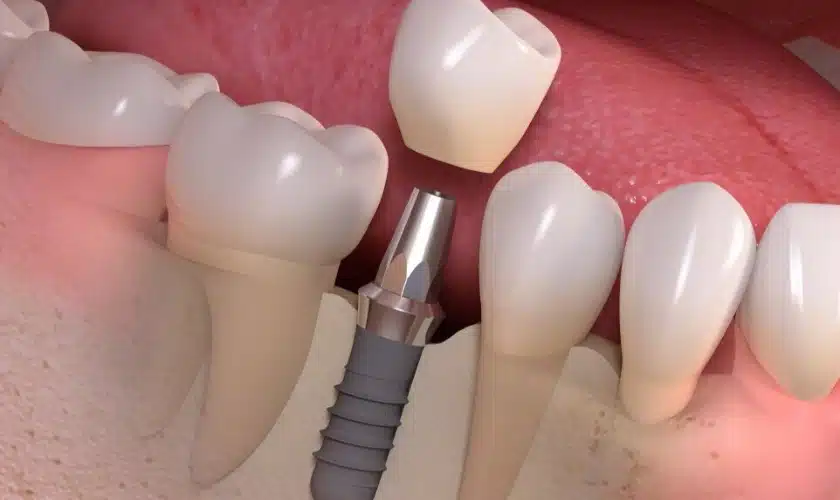 Good oral care is critical for overall well-being, and adults who routinely visit a general dentist are less likely to have problems with their teeth and health. Visiting a dentist twice per year can help detect and remediate the following conditions:
Good oral care is critical for overall well-being, and adults who routinely visit a general dentist are less likely to have problems with their teeth and health. Visiting a dentist twice per year can help detect and remediate the following conditions:
- Cavities
- Gum disease
- Oral cancer
- Tooth misalignment
- Systemic disease
Many people put off visiting a dentist due to fear of the unknown or pain, but in reality, a dental exam involves nothing to fear and is typically painless, as well as being invaluable for maintaining optimum health.
The elements of a routine exam
Visiting a general dentist is similar to seeing other practitioners in that specific protocols are followed. Most visits involve the following steps:
History
The first part of any general dental visit involves taking a thorough medical history. Documenting a patient's medications, illnesses, allergies, health changes, oral concerns, or pregnancy status, can help determine potential treatments.
Cleaning
A certified dental hygienist usually provides a thorough cleaning of the patient's teeth. Special tools allow the hygienist to scrape plaque and tartar from the surfaces and beneath the gum line. Some patients request a topical numbing agent for the gums to reduce sensations, but this is not necessary for most. Tooth polishing and flossing eliminate rough spots on the teeth and residual particles.
Images
A general dentist usually recommends X-rays of the entire mouth every few years, unless there is a history that warrants greater frequency. Low-radiation X-ray imagery is an essential diagnostic tool to examine the teeth roots, the jawbone, and the conditions below the gum line. It detects conditions that are not visible during a surface examination or do not yet cause a patient to experience noticeable symptoms.
Examination
After the dental hygienist cleans the patient's teeth, the dentist interprets the X-rays and examines the patient's mouth and neck for abnormalities and disease. During the exam, a dentist listens for clicking jaw joints and looks for bite misalignment, teeth that show wear, cavities and tooth sensitivity, and hard lumps associated with oral cancer.
Recommendations
A general dentist can help patients prevent various dental problems by making recommendations for brushing, flossing, and other home care measures. Some patients may require more frequent exams to thwart issues that the dentist predicts could cause tooth damage or loss. At times, a dentist may refer patients for advanced treatments for conditions resulting from genetics, illnesses, non-adherence to oral hygiene regimens, or medication side effects.
Why general dental exams are important
Routine dental visits help educate patients about good hygiene habits, manage and prevent oral disease, and address cosmetic concerns. In addition to preventing tooth loss and costly procedures, exams detect many systemic diseases and conditions of the body that initiate in the mouth before they are fully manifest. A dental exam can reveal evidence of lupus, Sjogren's syndrome, leukemia, anemia, various endocrine disorders, and other concerns, enabling patients to receive early treatments.
Conclusion
Everyone should regularly visit a general dentist for a simple, painless, and thorough examination. Home care regimens cannot substitute for the in-depth evaluation that occurs during a dental exam.
Request an appointment or call Canton-Plymouth Family Dentistry at 734-981-8040 for an appointment in our Canton office.
Recent Posts
Regular dental cleanings are an essential part of maintaining good oral health, but when it comes to fluoride treatments, some patients may question their necessity. However, fluoride cleanings offer significant benefits that contribute to overall oral health and cavity prevention. In this blog post, we'll explore why you shouldn't skip your regular fluoride cleanings and…
A general dentist is responsible for providing routine oral care to patients of all ages. Routine oral care typically involves cleanings, examinations, fluoride application, and x-rays. X-rays are typically the easiest part of routine oral care, however, they can often get skipped or overlooked. Keep reading to find out why a general dentist recommends getting…
Patients may be alarmed if a general dentist mentions that a tooth extraction may be needed during a routine appointment. A dentist’s primary goal is to preserve the teeth, but there some cases where a tooth cannot be saved using normal procedures. Understanding what situations can result in tooth removal and knowing the options available…


